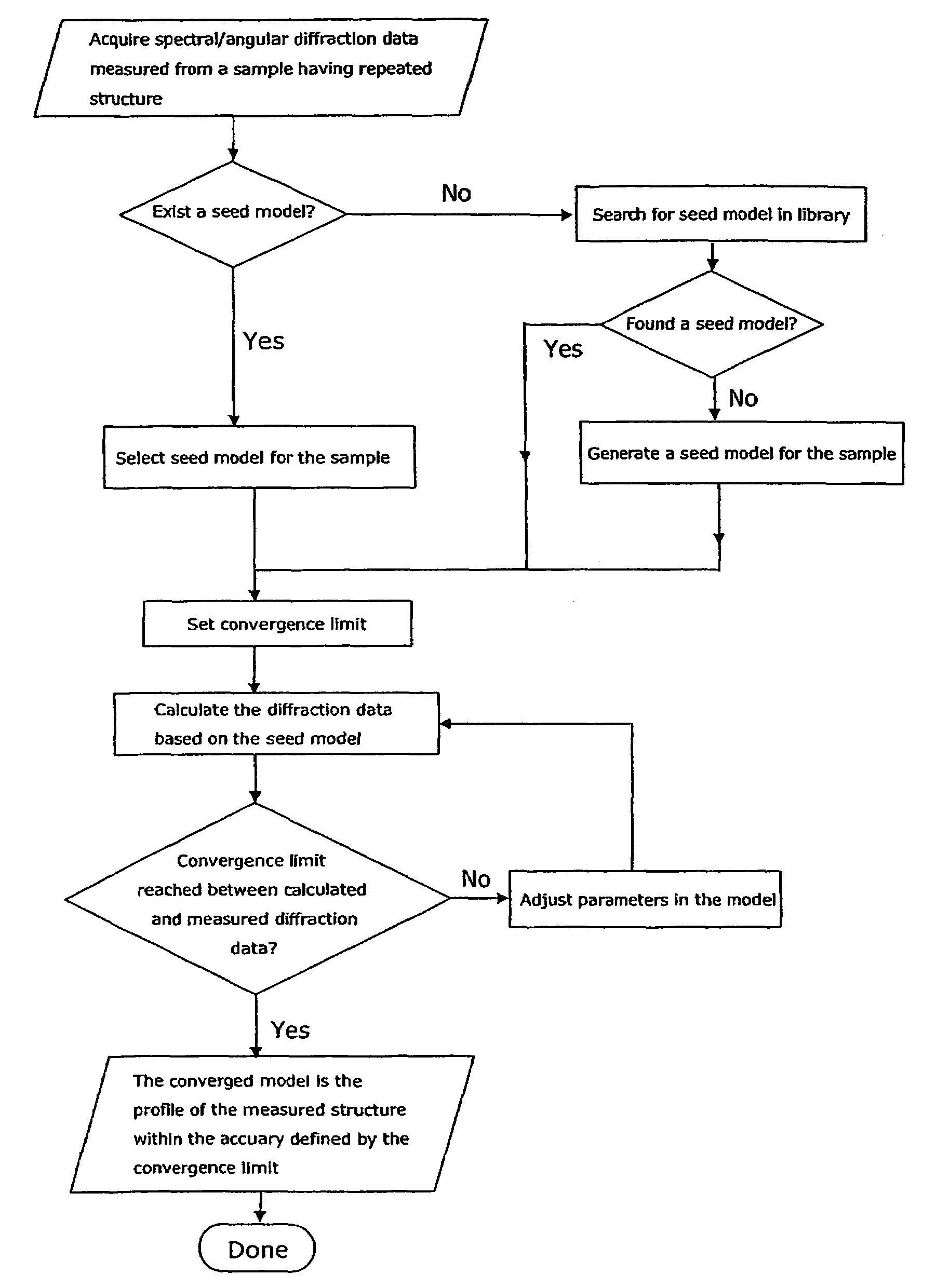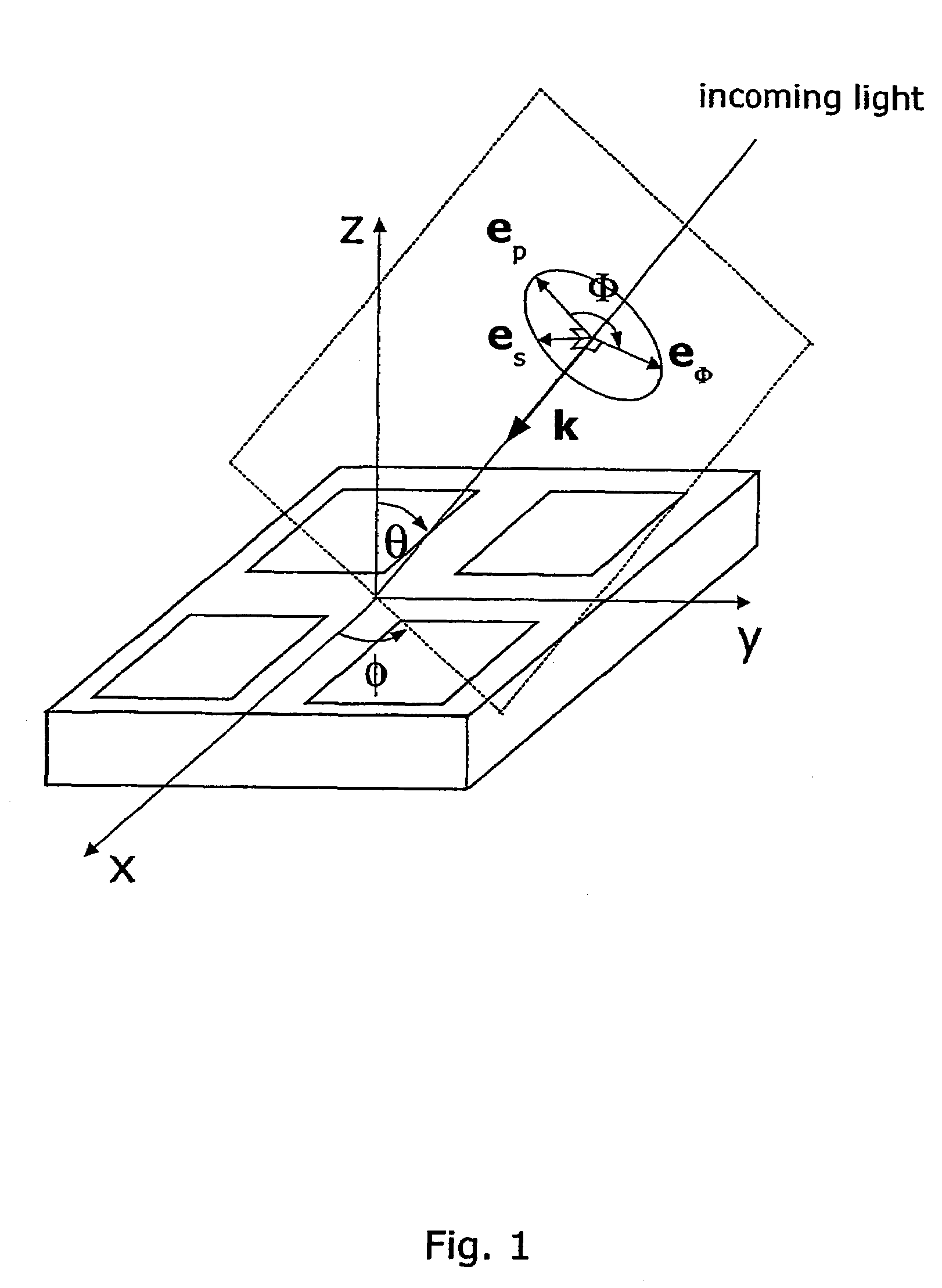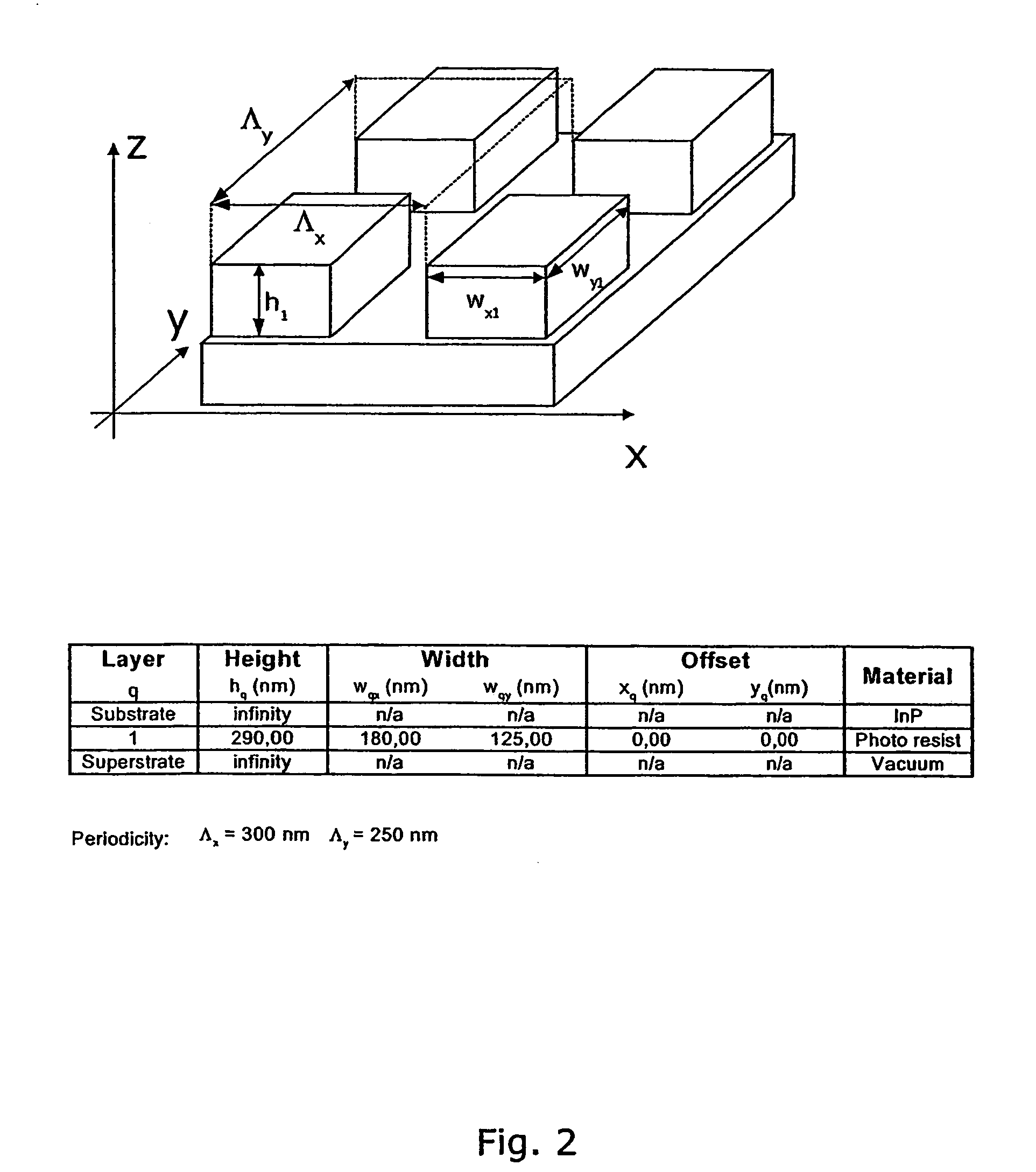Method and apparatus for optically measuring the topography of nearly planar periodic structures
a technology of optical measurement and periodic structure, applied in the direction of amplifiers, transmission, complex mathematical operations, etc., can solve the problems of distorted images, inability to measure high aspect ratio, and alter the structure to be measured
- Summary
- Abstract
- Description
- Claims
- Application Information
AI Technical Summary
Benefits of technology
Problems solved by technology
Method used
Image
Examples
Embodiment Construction
[0098]An illustration of the principle of the invention is in FIGS. 1-9. In FIG. 1 is defined the illumination geometry of a sample having a locally repeated structure. The structure is Illuminated by a plane electromagnetic wave characterized by its wavelength λ, linear polarization Φ, and the direction of propagation given by the incident angle θ and the azimuth angle φ. The Cartesian coordinate system has the x-axis along one of the periodic directions.
[0099]The intensity of light diffracted by the structure normalized to the intensity of the incident light, denoted as the diffraction efficiency, is calculated for a symmetric profile represented by a box in FIG. 2 and an asymmetric profile described in FIG. 3. The latter profile alters just slightly from the rectangular profile. In FIGS. 4-6 are plotted the calculated diffraction efficiency as function of wavelength for various diffraction orders, and in FIG. 7-9 are plotted the calculated diffraction efficiency as function of in...
PUM
 Login to View More
Login to View More Abstract
Description
Claims
Application Information
 Login to View More
Login to View More - R&D
- Intellectual Property
- Life Sciences
- Materials
- Tech Scout
- Unparalleled Data Quality
- Higher Quality Content
- 60% Fewer Hallucinations
Browse by: Latest US Patents, China's latest patents, Technical Efficacy Thesaurus, Application Domain, Technology Topic, Popular Technical Reports.
© 2025 PatSnap. All rights reserved.Legal|Privacy policy|Modern Slavery Act Transparency Statement|Sitemap|About US| Contact US: help@patsnap.com



